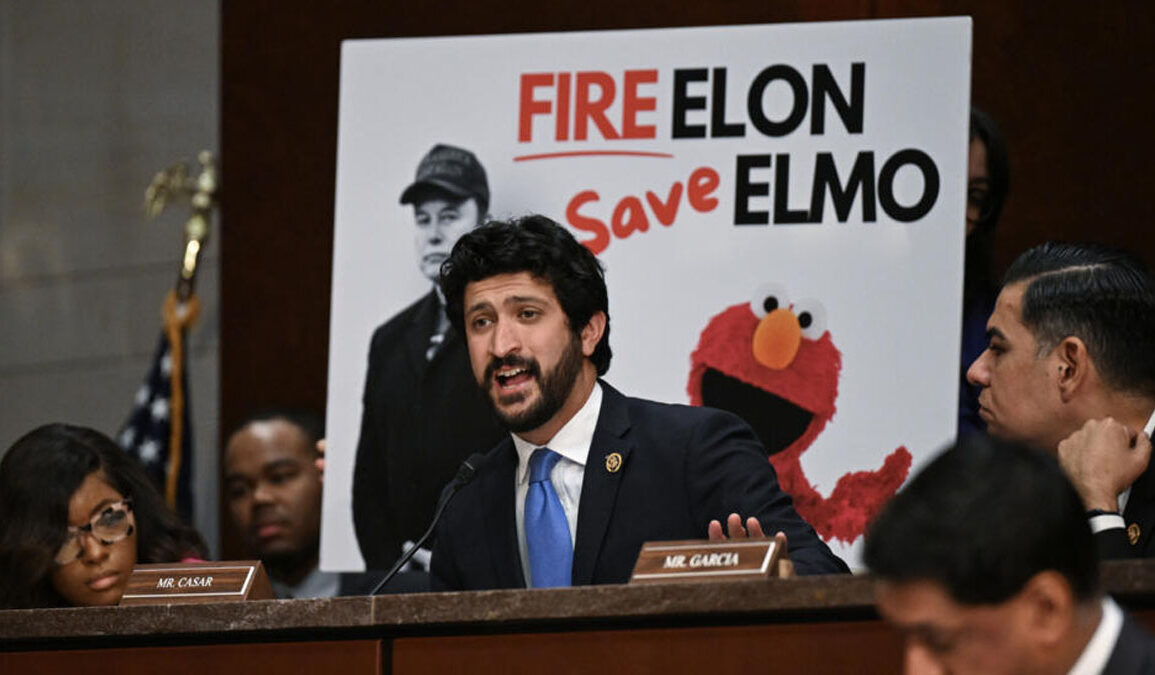National Public Radio (NPR) and the Public Broadcasting Service (PBS) are once again at the center of a major political battle. Former President Donald Trump is leading a renewed effort to eliminate their federal funding, accusing both organizations of being biased and unworthy of taxpayer support. Trump’s allies in Congress have joined him in this push, organizing hearings and launching harsh attacks on the networks’ leadership, programming, and editorial direction.
The heart of the argument is this: Should taxpayers be forced to support media outlets that many believe promote only one side of the political spectrum? Or are these public broadcasters essential for communities that have little access to local news and educational content?
Trump: “Just Say No” to Funding
On March 26, 2025, Trump posted a message on his Truth Social account calling for Congress to act quickly. “NPR and PBS, two horrible and completely biased platforms (Networks!), should be DEFUNDED by Congress, IMMEDIATELY,” he wrote. He warned Republicans not to miss the opportunity to eliminate what he called a “giant SCAM” and added, “JUST SAY NO AND, MAKE AMERICA GREAT AGAIN!!!”
At a press event at the White House earlier that same week, Trump was asked about a congressional hearing titled “Anti-American Airwaves: Holding the heads of NPR and PBS Accountable.” Trump responded, “Well, I would love to do that. I think it’s very unfair. It’s been very biased. The whole group, I mean, a whole group of them.” He went on to say, “They spend more money than any other network of its type ever conceived, so the kind of money that’s being wasted, and it’s a very biased view, you know that better than anybody. And I’d be honored to see it end.”
Trump’s main message is that there are already many other media outlets available, and the country does not need to keep paying for two that serve what he calls a “radical left” audience.
Congressional Hearing Targets “Biased” Coverage
The Delivering on Government Efficiency (DOGE) Subcommittee, led by Representative Marjorie Taylor Greene of Georgia, held a hearing on March 26 to examine whether NPR and PBS deserve to keep receiving public funds. The hearing was titled “Anti-American Airwaves” and included testimony from NPR CEO Katherine Maher and PBS CEO Paula Kerger.
Greene did not hold back. She described the public broadcasters as “radical left-wing echo chambers” and said, “I want to hear why NPR and PBS think they should ever again receive a single cent from the American taxpayer.” She added, “These partisan, so-called ‘media’ stations dropped the ball on Hunter Biden’s laptop, down-played COVID-19 origins, and failed to properly report the Russian collusion hoax.”
She continued, “Federal taxpayers should not be forced to pay for one-sided reporting, which attacks over half the country to protect and promote its own political interests.”
One of the sharpest attacks came when Greene questioned a PBS program that featured a drag queen reading a children’s book. She referred to the performer as a “child predator” and a “monster,” drawing national attention and sparking outrage. Critics say these moments reveal a deeper effort to control media narratives and silence viewpoints that do not align with MAGA-style conservatism.
Defenders and Detractors Clash Over Public Funding
Katherine Maher and Paula Kerger strongly defended their organizations. Maher admitted NPR mishandled some important stories, such as the Hunter Biden laptop scandal, but said the organization has learned from its mistakes. “Our current editorial leadership thinks that was a mistake, as do I,” she said.
Maher also addressed past social media posts she made calling Trump a “racist” and a “sociopath.” She expressed regret, saying, “They represented a time when I was reflecting on something that the president had said rather than who he is.”
Kerger pushed back against the idea that PBS was pushing a political agenda. “There’s nothing more American than PBS,” she said. She emphasized the network’s focus on educational programming, cultural content, and local news. “We’ve been proudly fulfilling our mission for nearly 60 years, using the public airwaves and other technologies to help educate, engage and inspire the American people.”
Democratic lawmakers defended both Maher and Kerger. Representative Ro Khanna cited the late Fred Rogers, who once testified before Congress to save PBS during the Nixon administration. “Mr. Rogers understood what we’ve forgotten in this country,” Khanna said. “Some things are more valuable than money at a time where a country is polarized.”
Representative Jasmine Crockett of Texas took aim at Greene and other Republicans, saying, “The idea that you want to shut down everybody that is not Fox News is bull—. We need to stop playing because that’s what y’all are doing in here. You don’t want to hear the opinions of anybody else.”
Do NPR and PBS Deserve Public Money?
Federal funding makes up a small portion of the budgets for both NPR and PBS. According to their leadership, NPR receives about 1 percent of its funding directly from the federal government, though it also benefits indirectly from grants and station fees. PBS receives around 16 percent of its funding from government sources, mostly through the Corporation for Public Broadcasting (CPB), which is allocated approximately $500 million a year by Congress.
The average public radio station receives about 8 percent of its funding from the government, while public TV stations average about 17 percent. That translates to about $1.50 per American per year, according to PBS. In comparison, the British Broadcasting Corporation (BBC) costs each British citizen around $70 per year through mandatory licensing fees.
Even with the low cost, many Americans are unsure about continuing the support. A Pew Research Center survey found that 43 percent believe public broadcasters should keep getting federal funds. Twenty-four percent want to cut funding, while 33 percent are undecided. Among Republicans, fewer than half support removing the funding.
Accusations of Bias and Elitism
Critics argue that NPR and PBS no longer reflect the interests of everyday Americans. Instead, they say, these outlets have become echo chambers for liberal elites. During the hearing, Republican lawmakers pointed to the resignation of Uri Berliner, a former NPR editor who accused the organization of lacking viewpoint diversity. Berliner said he did not support defunding NPR, but believed the network should stop taking federal money and admit its liberal bias.
Representative James Comer of Kentucky, a Republican, said he used to rely on local public radio when he worked as a farmer. “I don’t even recognize NPR anymore,” he told the committee. He questioned why public media should receive funding at a time when digital news is widely available.
Supporters of NPR and PBS, however, argue that their work still serves communities that lack other news options. Kerger emphasized that PBS stations cover local issues like school board meetings, crop prices, and local sports—things that many larger media companies overlook. Maher pointed out that nearly all Americans live within range of a public radio station.
A Political Battle with Cultural Roots
The debate over funding NPR and PBS is not just about dollars and cents. It reflects a larger cultural struggle between conservative Americans who feel ignored or attacked by mainstream media and those who see public broadcasting as a valuable public service.
Trump’s late-night social media posts may have added fuel to the fire, but the battle has been going on for decades. Every Republican administration since Nixon, with the exception of Gerald Ford’s, has tried to cut public broadcasting. Trump’s effort is simply the latest and perhaps the most aggressive chapter in that ongoing war.








